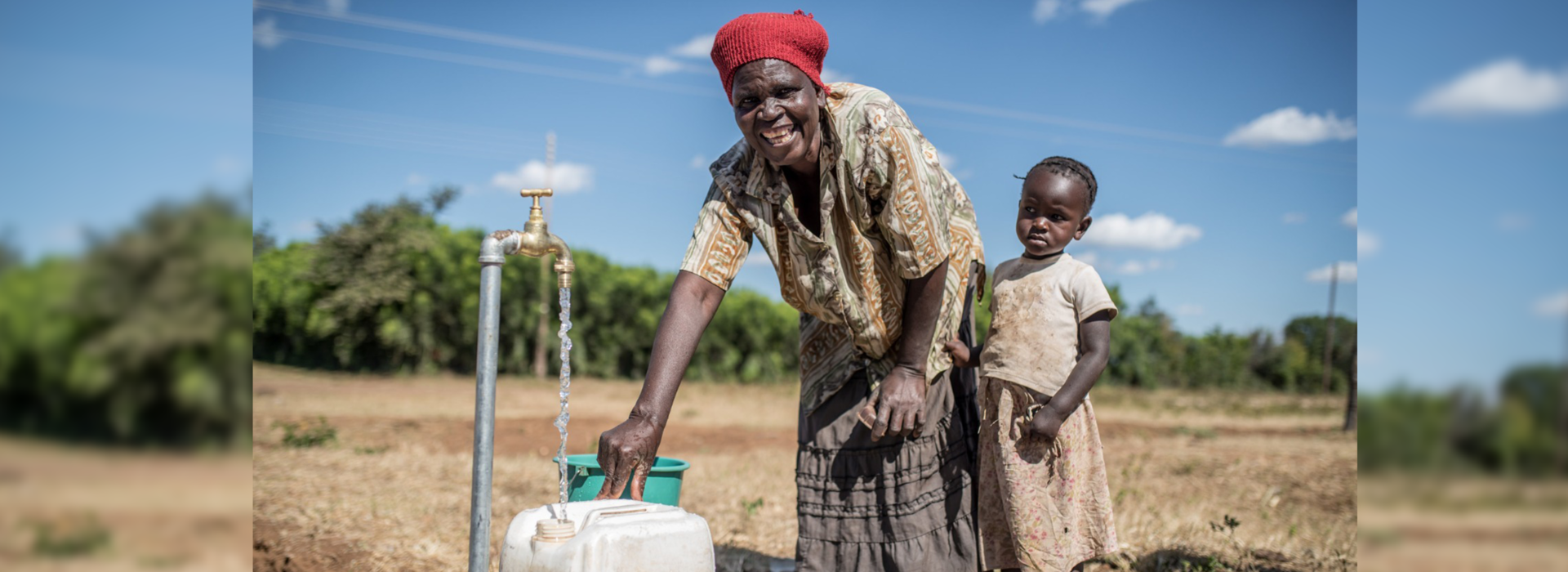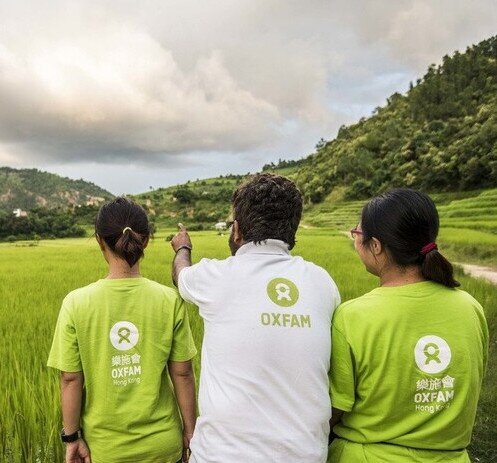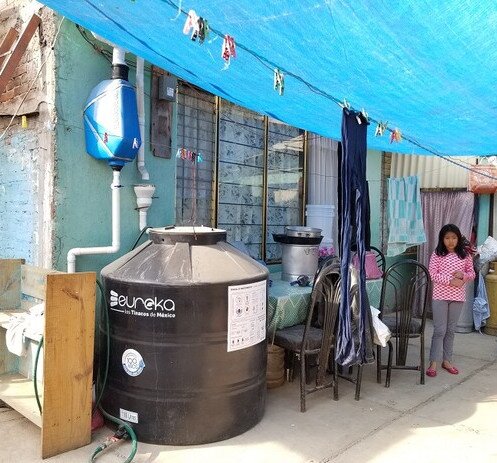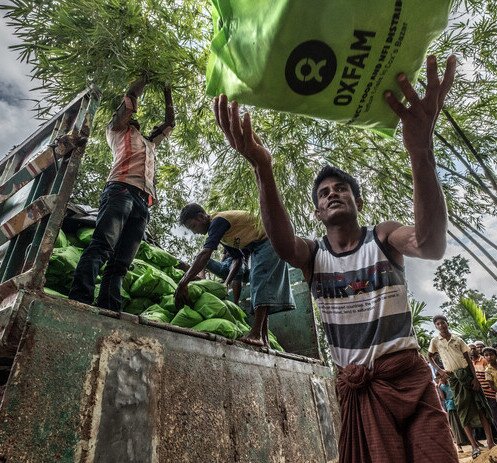Ellina (left), 67, fetches water at a water point supported by Oxfam, and looks after her granddaughter at the same time. The water point has greatly reduced women’s time and effort to get water. (Photo: Aurelie Marrier D'Unienville / Oxfam)
The Global Situation
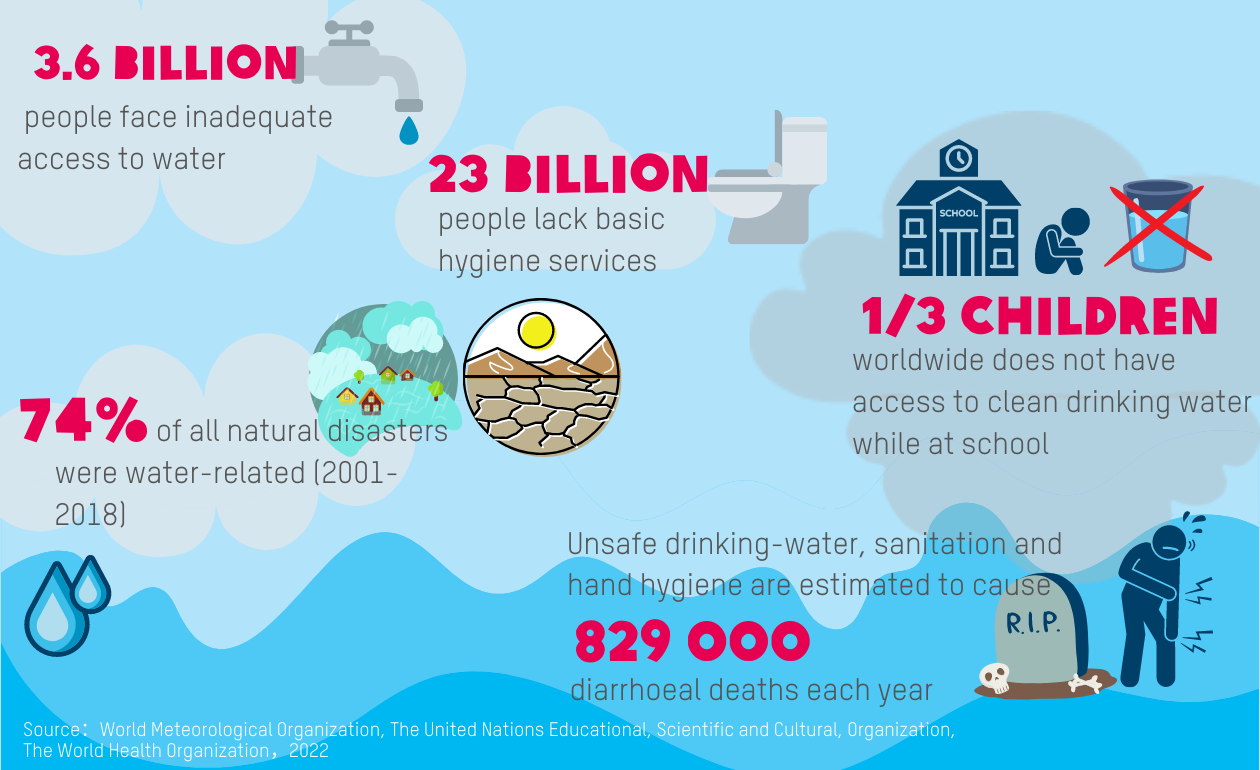
Oxfam’s Work on Water, Sanitation and Hygiene
Viruses and diseases do not discriminate. The poor, who lack the basics such as safe drinking water, sanitation facilities and healthcare, are hardest hit there is a disease outbreak.
Since the 1960s, Oxfam has been committed to providing clean water, public sanitation facilities and promoting hygiene in poor areas and refugee camps around the world. Through our many years of experience, we know that without access to these necessities, it is easy for individuals, families and communities to fall (back) into poverty, especially when they fall sick.
Protecting the Health of Refugees
Photo: Ko Chung Ming / Oxfam
According to the UNHCR, as of the end of 2021, more than 89 million people worldwide were forced to be displaced due to violent persecution, conflict or climate change. Can you imagine what would happen if there was a disease outbreak in a cramped refugee camp where there is a lack of clean water or sanitation facilities? If that happens, not only would care workers, but also refugees and nearby host communities be at risk of a bigger humanitarian crisis. Oxfam’s experts in the photo are discussing the installation of a water supply system in front of a large water storage tank. They have extensive experience in providing water and sanitation in refugee camps.
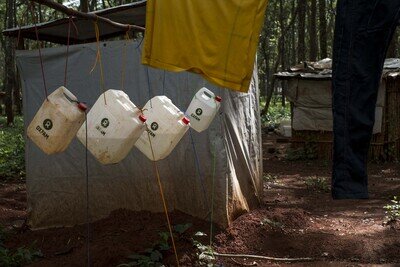
Photo: Phil Moore / Oxfam
Public health includes health facilities, disease prevention, and sanitation. Children, the elderly, pregnant women, and girls are the most vulnerable and have the greatest demand for WASH. Here in the Nduta refugee camp in Tanzania, Oxfam has built a latrine with a handwashing station for every four households. Oxfam has installed a total of 6,771 toilets and 4,396 bathing units in the camp.
Protecting the Health and Livelihoods of Poor Communities
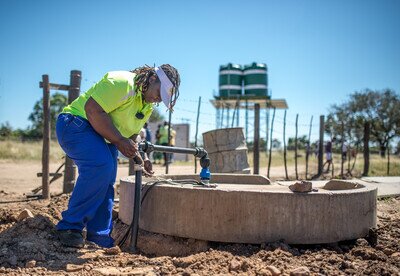
Photo: Aurelie Marrier D'Unienville / Oxfam
Takudzwa, an Oxfam WASH Engineer working on an Oxfam supported solar piped water system in Somerton village, Zimbabwe. The system will supply water to a local school and clinic as well as many families in the local community. With the water system, villagers will have safe water, and women can spend less time and effort to fetch it, and they can have more time taking care of their families and developing livelihoods.
Protecting Lives amid an Epidemic
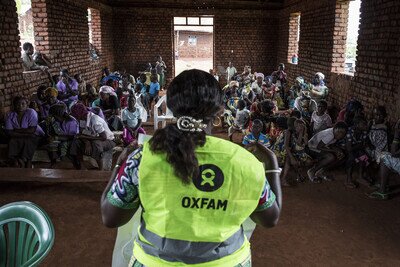
Photo: John Wessels / Oxfam
During the outbreaks of Ebola in West Africa and eastern Democratic Republic of Congo, Oxfam has worked directly with communities to support local solutions to the outbreak and to ensure that communities have the knowledge and capacity to prevent and help contain the disease. Oxfam has also been providing clean water and handwashing stations to enable the poorest to practice good hygiene and to slow the spread of disease. These interventions are now crucial in response to the coronavirus, will save lives, slow its spread, and reduce pressure on completely under-resourced health systems.
Espoir Mahamba (pictured), a public health promotor for Oxfam, speaks to a church congregation about Ebola, precautions to be taken and symptoms to look out for on a Sunday in Mangina. We have been working closely with local leaders and communities to stop the the spread of the virus with community engagement and through sanitation activities.
_1590142713.jpg)
You can give people more reason to smile!
Donate today to ensure poor communities have access to clean water and sanitation facilities. This will not only prevent the spread of disease, but also improve the health and livelihoods of those living in these communities.

